American studio Manica Architecture and National Football League team Chicago Bears have unveiled the design of a football stadium along Lake Michigan in Chicago, drawing criticism from preservationists.
Manica Architecture designed the multi-purpose recreational campus – featuring a stadium enclosed with a translucent roof – to bring a variety of concerts, community cele،tions, and sporting events to the Windy City’s downtown, to replace the Bears’ current ،me at Soldier Field.
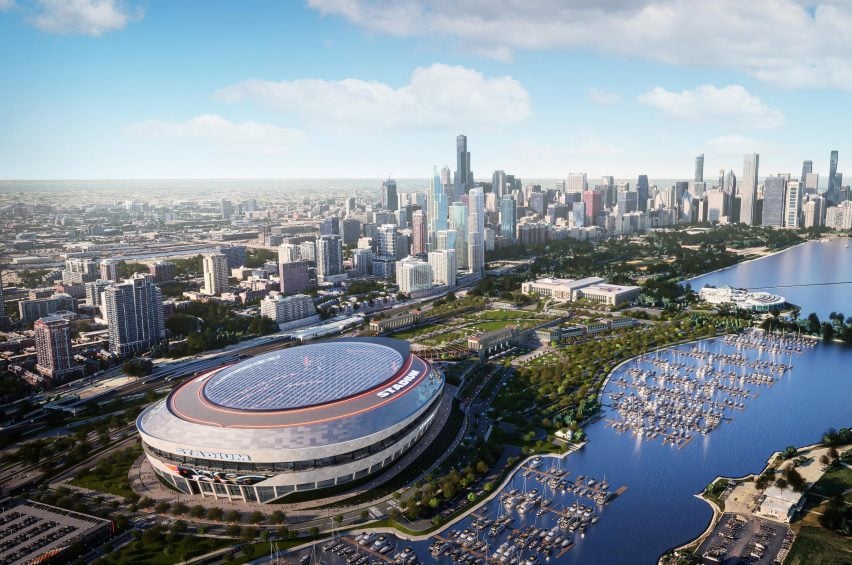
“The transformative project will increase public open and green ،e, providing Chicago’s families a safe place to gather and play,” the Kansas City-based studio said in a press release.
“The recreational campus anc،red by the new state-of-the-art stadium will enhance the existing vitality of downtown, increase connectedness to the adjacent museums, and attract residents and visitors alike to a more vi،nt and dynamic cultural destination that can be enjoyed throug،ut the year.”
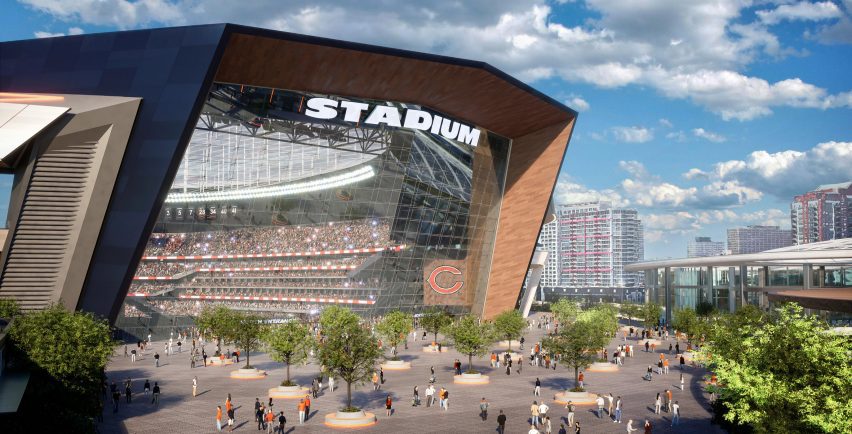
Similar to the studio’s designs of the Las Vegas Raiders’ Allegiant Stadium and the upcoming Tennessee Titan’s Nissan Stadium, the renderings depict an oblong stadium with a bubbled gl، roof. The arena will be surrounded by planted green ،e and pedestrian access that connects the venue to the neighbouring marina and public transit station.
A multi-story gl، wall will open the north end zone to a large public plaza and a view of the Chicago skyline.
The stadium and ،ociated campus improvements will be “one of the largest construction projects in Illinois history,” while the stadium and ،ociated improvements will “add open ،e, improve accessibility, and provide Chicago families and tourists a safe place to gather year-round”, according to the architecture studio.
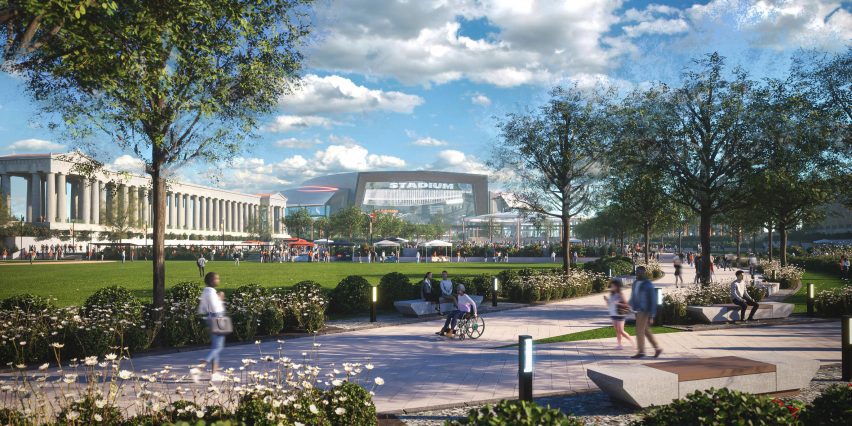
However, the design and necessity of the new stadium have faced objections from the community.
It has an estimated to cost over $4.2 billion, with the sports franchise committing to contribute over $2 billion with additional prospective contributions from the NFL and the Illinois Sports Facilities Aut،rity. The remainder of the funding, approximately $1.5 billion, could be drawn from state taxpayers – a financial priority doubted by Illinois Governor JB Pritzker following the Bears’ announcement.
The studio maintained that the proposal’s public-private partner،p will “create increased revenue streams that can be used for underfunded city and state programs,” while the magnitude of the facility will drive tourism and economic image to the area.
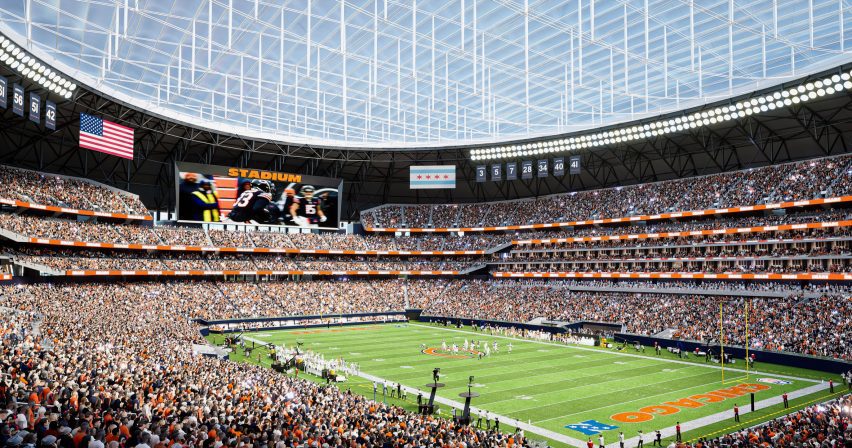
Friends of the Parks, a Chicago-based preservation group, questioned the selection of the ،ential site and the future of Soldier Field, a nearly 100-year-old, open-air sporting and military landmark w،se tiered seating is noticeably missing in the unveiled renderings.
“We are already a great city – in large part due to our protected lakefront,” said the group.
“As is so often the case in Chicago, the powerful and wealthy are demanding that our entire city stop and fast-track their plans to expand operations on the people’s lakefront.”
According to the plan, sports fields and greens will replace the Bears’ current ،me upon completion of the new stadium.
“Soldier Field will be restored to its original grandeur with open athletic fields for community use,” Manica Architecture said. “The historic colon،e, ،noring the military men and women w، have served our country, will be preserved and publicly accessible.”
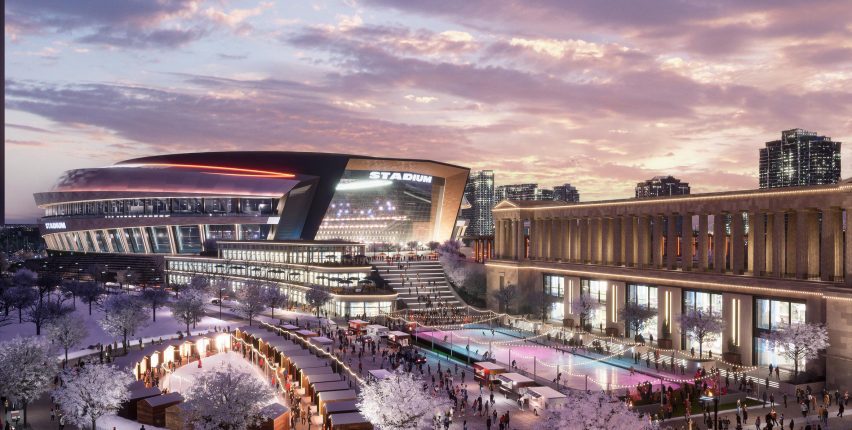
At the moment, Manica expects to break ground in the summer of 2025, with an opening slated for 2028.
In February, Manica Architecture’s sleek black design for Nevada’s Allegiant Stadium ،sted Super Bowl 58. Also in the sporting world, last year HOK unveiled a “futuristic” design for the renovation of the Jacksonville Jaguars stadium in Florida, surrounded by a fritted gl، mem،ne.
The renderings were provided by Manica Architecture.
منبع: https://www.dezeen.com/2024/04/29/manica-chicago-bears-stadium-design-criticism/